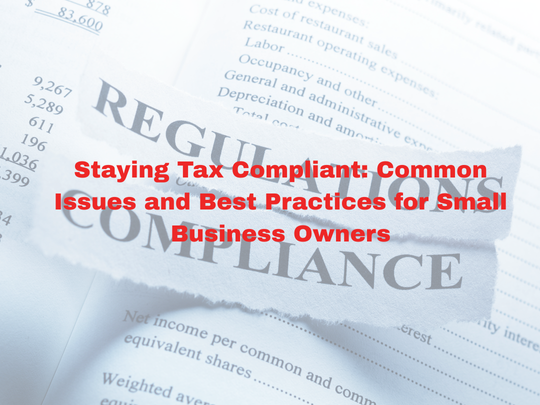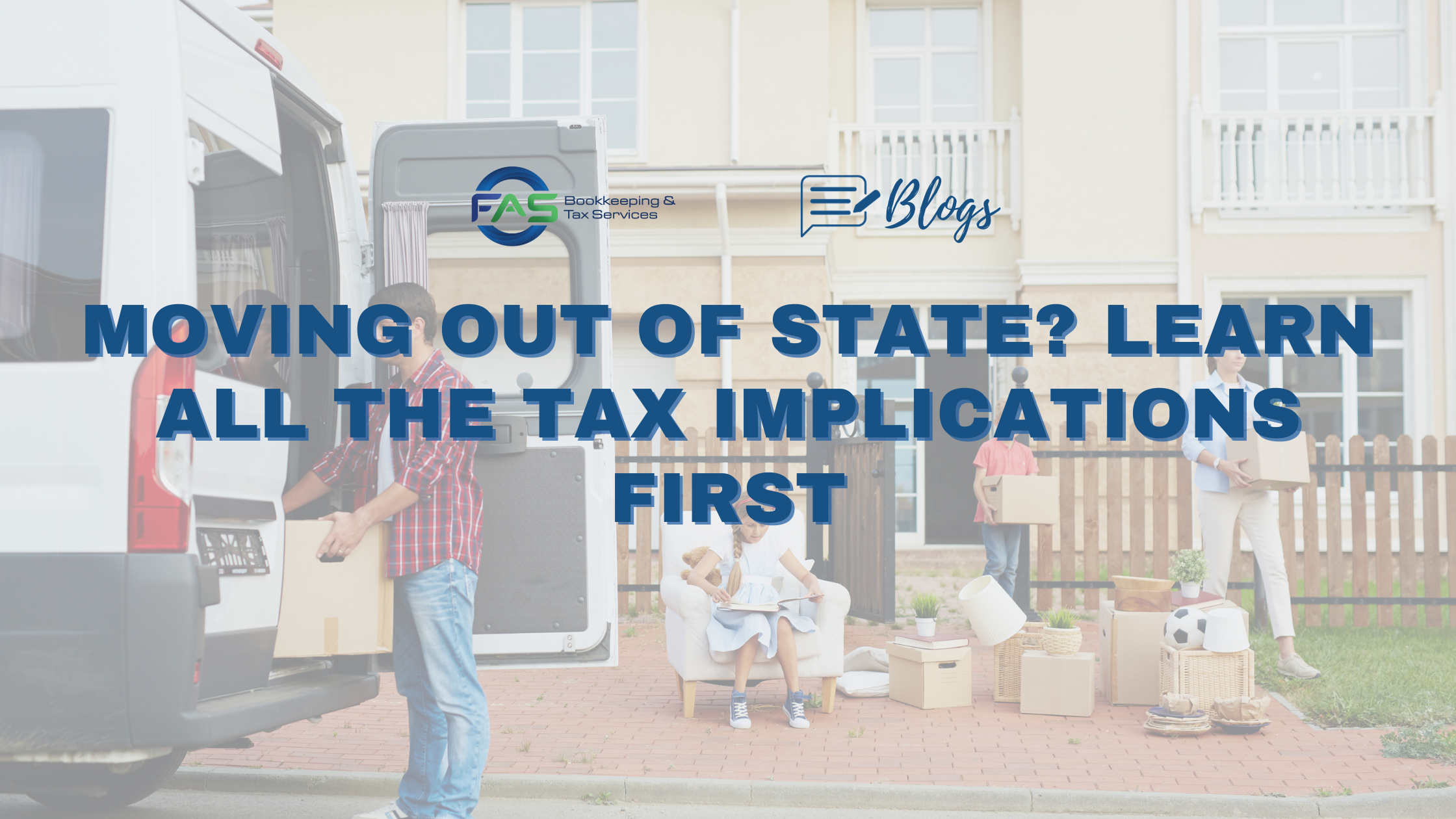Moving Out of State? Learn All the Tax Implications First
With so many people working remotely these days, thinking about moving to another state has become common — perhaps for better weather or to be closer to family. Business owners might contemplate selling their business as part of an out-of-state move. Many retirees also look at moving to a state with a lower cost of living to stretch their retirement savings. If you’ve found yourself harboring such notions, be sure to consider taxes before packing up your things.
What Taxes Apply?
It may seem like a no-brainer to simply move to a state with no personal income tax, but you must consider all taxes that can potentially apply to state residents. In addition to income taxes, these may include property taxes, sales taxes, and estate or inheritance taxes.
If the states you’re considering have an income tax, look at what types of income they tax. Some states, for example, don’t tax wages but do tax interest and dividends. And some states offer tax breaks for pension payments, retirement plan distributions and Social Security payments.
What Are the Domicile Requirements?
If you make a permanent move to a new state and want to escape taxes in the state you came from, it’s important to establish legal domicile in the new location. Generally, your domicile is a fixed and permanent home location where you plan to return, even after periods of residing elsewhere.
Each state has its own rules regarding domicile. You don’t want to wind up in a worst-case scenario: Two states could claim you owe state income taxes if you established domicile in the new state but didn’t successfully terminate domicile in the old one. Additionally, if you die without clearly establishing domicile in just one state, both the old and new states may claim that your estate owes income taxes and any state estate tax due.
The first step to establishing domicile is to buy or lease a home in the new state and, generally, to sell your previous home (or rent it out at market rates to an unrelated party). Then, change your mailing address on bank and investment accounts, insurance policies and other important documents. Getting a driver’s license in the new state and registering your vehicle there also helps. So does registering to vote there and becoming involved with local organizations and activities. Be sure to take these and other steps as soon as possible after moving.
Keep in mind that there may be rules about the number of days spent in the state. So, you may have to do more than take the steps above to show that you’re domiciled in the new state.
How Might State Taxes Affect a Business Sale?
Business owners tend to focus on the federal tax implications of a sale, while they may ignore state taxes. Now that federal tax rates are lower than they’ve been in the past, state taxes may take on added significance. If you’re contemplating relocating or retiring to another state, it may make sense to consider moving before you sell the business — especially if the new state has low, or even no, income tax.
To successfully negotiate the sale of a business, it’s critical to understand all the tax implications. Armed with this knowledge, you can assess the impact that moving to another state would have on your net proceeds from the sale and whether it would be better to sell the business before or after you move.
Need Help?
When looking into whether the grass is greener in another state, do some research and contact the office for help avoiding unpleasant tax surprises. 
© 2023




